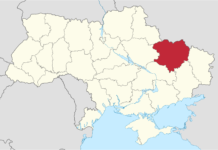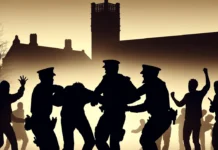Earlier this morning, Russia launched a concerted aerial assault on the central Ukrainian city of Dnipro, utilizing both missiles and drones. This attack is part of a broader pattern of aggression in the region, marking a continued intensification of hostilities as the full-scale invasion of Ukraine by Russia approaches its two-year anniversary. In response to the ongoing conflict, Ukraine’s parliament has moved to extend martial law and military mobilization for an additional 90 days, a decision reflecting the severe and protracted nature of the crisis. This extension, the tenth of its kind since the conflict’s inception in February 2022, is indicative of the sustained tension and violence affecting the region. It underscores the enduring impact of the invasion on Ukraine’s political, military, and civilian landscapes, signaling a protracted struggle for sovereignty and stability in the face of external aggression.
The decision to extend martial law and military mobilization was made by the Verkhovna Rada, Ukraine’s legislative body, and comes at a time when Ukraine is grappling with the multifaceted challenges posed by the invasion. These measures are intended to bolster Ukraine’s defense capabilities and ensure the continued mobilization of resources and personnel necessary to confront the ongoing threat. President Volodymyr Zelenskiy, who submitted the drafts for these extensions, has been actively involved in rallying both national and international support for Ukraine’s cause, emphasizing the critical need for unity and resilience in the face of adversity.
The attacks on Dnipro and the legislative actions taken by Ukraine highlight the complex dynamics of the conflict, which extends beyond the battlefield to encompass legal, social, and humanitarian dimensions. The extension of martial law and military mobilization underscores the Ukrainian government’s commitment to defending its sovereignty and protecting its citizens, even as it navigates the challenges of war and diplomacy. As the conflict continues to evolve, the international community remains closely attuned to developments in Ukraine, recognizing the broader implications of the struggle for regional stability and international order.
The situation in Dnipro and the legislative response by Ukraine’s parliament are reflective of the broader conflict’s enduring nature and the significant challenges faced by the country. As Ukraine continues to defend itself against aggression, the international community’s role in supporting the nation’s sovereignty and humanitarian needs remains of paramount importance. The resilience of Ukraine’s military and civilian populations, as demonstrated by their continued resistance and adaptability, serves as a testament to the nation’s determination to overcome adversity and pursue a future marked by peace and stability.
Image is licensed under the Creative Commons Attribution-Share Alike 3.0 Unported license and was created by Skluesener~commonswiki.










